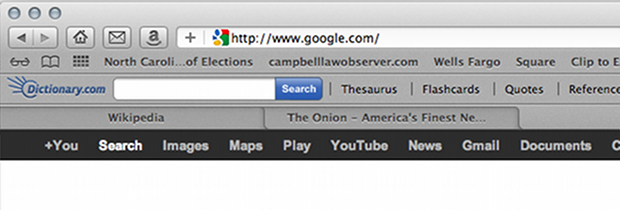“Don’t Teach Me, Bro!”: Educational Responsibility in the Age of Wikipedia
Every college student who worked his or her way through freshman composition has done it. The research paper is a rite of passage on American university campuses. It is a project that teaches students the nature of academic thought and writing: utilizing credible sources to support an argument or point of view. There is an emphasis not only on citing sources, but also on evaluating the sources the student uses to support her argument. But what actually counts as “research”? And where is the line between a student’s First Amendment rights and a university’s responsibility to teach and maintain academic integrity? These questions came before the District Court for the District of Minnesota in Turkish Coalition of America, Inc. v. Bruininks. The opinion was just filed in May 2012.
The case involved a list of “unreliable websites” circulated by the University of Minnesota’s Center for Holocaust and Genocide Studies. The Turkish Coalition of America (TCA) and a University student claimed the list constituted defamation and violated the First Amendment. The student argued the professor’s recommendation that he not use the websites on the list for an academic research paper had chilled his speech. The Court held that the student lacked standing to bring the claim because he was not actually enrolled in the professor’s class and the professor was not in a position to affect his academic standing.
TCA brought claims under both the First Amendment and defamation. TCA argued that warning students against using the website constituted a denial of access to ideas, but the Court held there was no indication “university students were not free to…read the TCA website, email material from the TCA website to their friends, regale passers-by on the sidewalk with quotes from the TCA website, and so forth. In short, TCA’s website was not ‘removed’ from the university in any sense.” In response to TCA’s claim that the restricted website list constituted a First Amendment violation of the freedom of speech, the Court found “no obstacle to accessing any materials TCA wishes to exhibit on its website; there is merely an obstacle to citation of the material in students’ research papers.” The Court elaborated, “While the Center warned against that narrow type of re-use, it ‘placed no burden on protected expression’ by TCA.”
As to the defamation claim, the Court found TCA could not bring a claim simply because a professor had presented an opinion on the reliability of the organization’s website. Instead, the Court found the professor’s statements “would not suggest to an ordinary listener that the speaker intended to level specific charges of scholastic fraud against TCA, Wikipedia, or the other listed websites, not least because websites in general are not ordinarily viewed as scholarly works.” Not scholarly, perhaps. But “scholarly” does not mean the same thing as “reliable.” Many professors and professionals maintain websites in which they chronicle their research and academic pursuits, academic journals often publish in an online format, and media and cultural studies is gaining strength in American universities as an independent field of study. But for every one of those “scholarly” websites, there is an independent blogger posting her opinions online without providing any basis beyond their gut feeling.
In today’s technological climate, the line between “reliable” and “available” is easily blurred. To a generation who grew up steeped in digital information, if something is published on the Internet, it must be true, regardless of authorship. The Internet is not only infallible, but also a handy tool for avoiding the difficulty of the writing process. This situation has become so widespread that the New York Times reported in 2010 on the rise in plagiarism at American colleges, specifically on how the Internet has made plagiarism easier. Today’s students feel pressure from all sides, and education may not seem so much a priority as something to do. Many students are involved in extracurricular activities, sports, and work part-time or full time in addition to carrying a full course load. For students feeling pressure to succeed—or at least appear successful—the temptation to simply copy and paste from Wikipedia is tempting.
At least the student in Bruininks gave the appearance of wanting to cite his source. However, this does not mean the professor’s instructions to avoid “unreliable” websites constitutes a violation the student’s freedom of speech. The Court held that simply labeling an organization’s website unreliable and discouraging the use of that website in student research papers was not a First Amendment violation. A research paper for a university course is written for an audience of one—the professor who ultimately evaluates the quality of the writing and the thought process that goes into the final product. Part of the professor’s role in the course is to teach students what it means to do research, and research is more than merely copying and pasting from the first link you find in a Google search. A professor who requires written papers as part of the curriculum has a responsibility to instruct students how to evaluate sources and differentiate fact from opinion. In Bruininks, the Minnesota District Court recognized the duties and responsibilities of a university to its students, while reminding technologically minded students that academic standards still apply to them.






